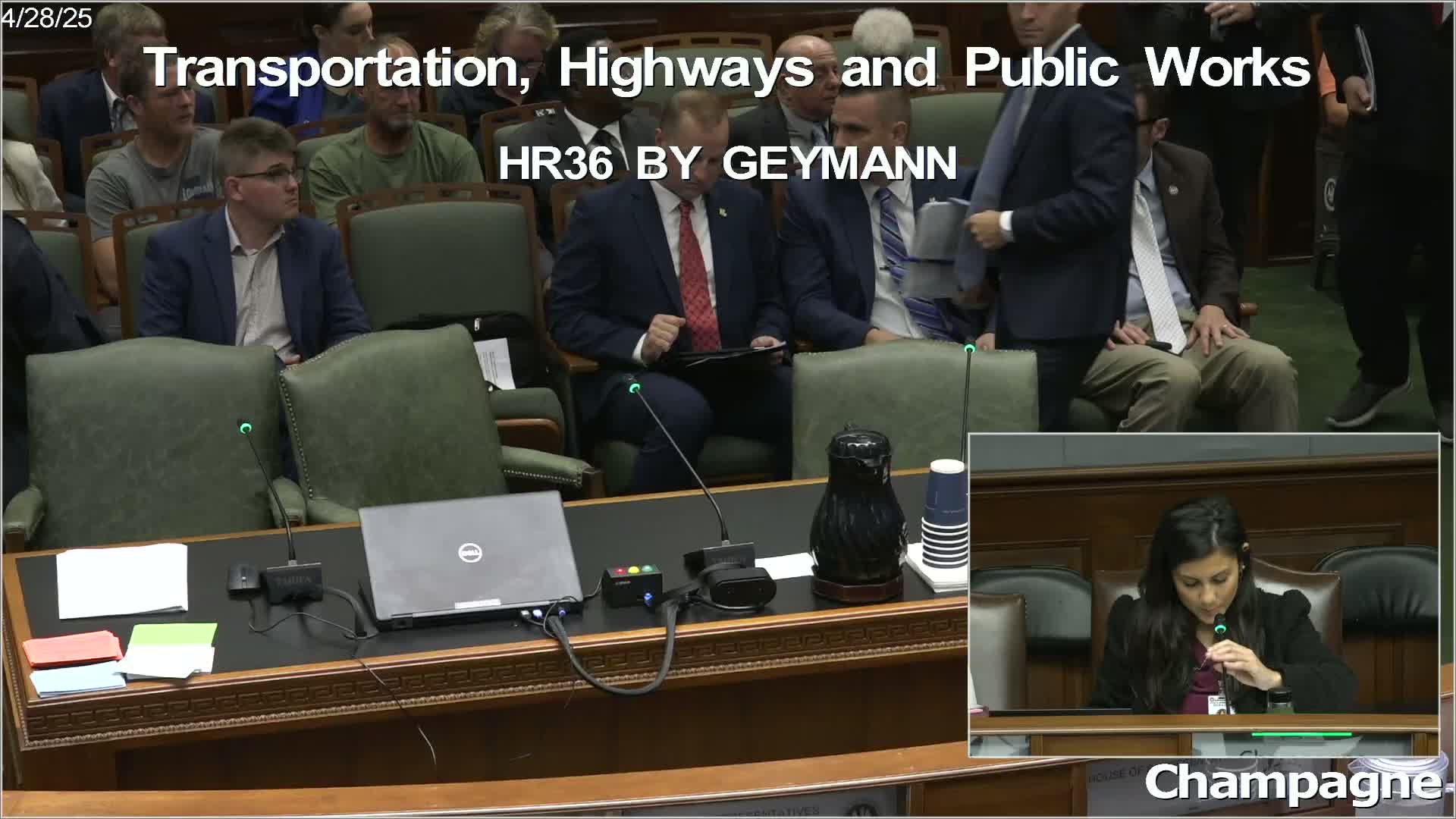Committee reports state coastal protection plan amid dispute over Mid‑Barataria diversion
Get AI-powered insights, summaries, and transcripts
Subscribe
Summary
The Transportation Committee reported House Resolution 36 — the fiscal‑year 2026 state integrated coastal protection plan — favorably after a lengthy presentation from CPRA and wide public comment that focused on the future of the Mid‑Barataria sediment diversion.
Chairman: The House Transportation Committee on April 28 reported House Resolution 36, the state’s fiscal year 2026 integrated coastal protection plan, favorably after a presentation by the Coastal Protection and Restoration Authority and extended public testimony on multiple projects and a single contentious centerpiece: the Mid‑Barataria sediment diversion.
What the plan does: CPRA executive director Glenn Lade told the panel the FY‑2026 annual plan lists 146 projects and about $1.98 billion in expenditures, with 79% of funds going to construction and most dollars coming from non‑general‑fund sources such as federal settlement and offshore royalty receipts. The plan covers work statewide: marsh creation, barrier‑island restoration, levee improvements and federally partnered flood‑risk projects.
Contested project: Many public commenters focused on the Mid‑Barataria sediment diversion — a large, river‑reintroduction project that has completed environmental review, attracted more than $600 million in prior spending and drawn intense local opposition. Speakers for and against the diversion appeared in large numbers. Proponents, including conservation groups and some coastal scientists, warned that abandoning the diversion would waste more than half a billion dollars already spent, jeopardize federal funding and slow restoration in the Barataria Basin. Opponents — many commercial fishermen, parish officials and Grand Isle residents — said the diversion would harm fisheries and communities and called for alternative, smaller projects.
CPRA response and next steps: Glenn Lade and CPRA board chairman Gordon Dove said the plan contains numerous projects across parishes and that the Mid‑Barataria item remains listed because it has not been officially modified or terminated; CPRA reported it has been coordinating with federal partners and Congress on options. Lade emphasized the plan includes investments beyond the diversion, and Dove said funds would be redistributed to other projects if priorities change.
Committee action: Representative Tarver moved to report HR 36 favorably. There were no objections; the committee reported the annual plan favorably.
Why it matters: HR 36 governs prioritization and spending of multiyear coastal restoration funds that rely heavily on federal settlements and royalties. The debate highlights the fiscal and ecological risks of changing course after federal expenditures and permits have been issued and the political sensitivity of large diversions in coastal communities that depend on fisheries.
Follow‑up: CPRA representatives told the committee they will continue consultations with federal partners and local stakeholders. Lawmakers said they expect further questions and potential amendments as the plan proceeds through chambers.
